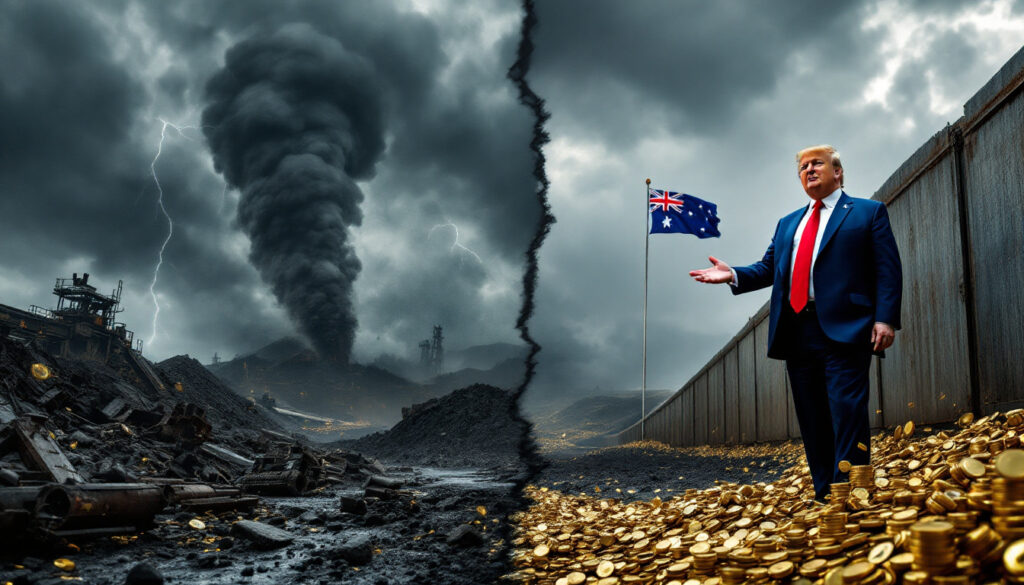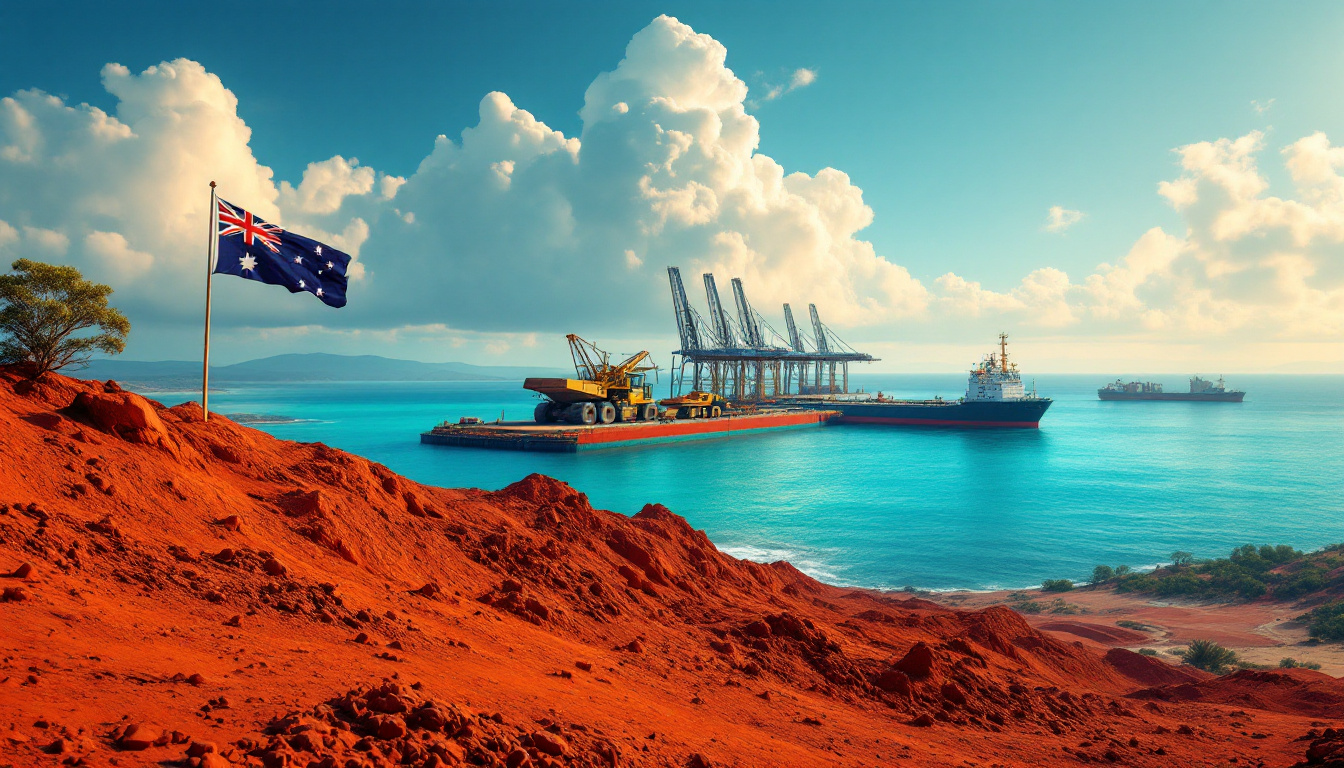Understanding the NuCoal Resources Compensation Saga
The NuCoal Resources compensation saga represents one of Australia's most contentious mining disputes, with significant implications for both domestic politics and international trade relations. At its core lies a cancelled coal exploration licence, billions in lost investments, and now potential trade repercussions from the United States. This dispute highlights the complexities of navigating geopolitical shifts in investor strategies in today's interconnected global economy.
The Corruption Case Behind the Licence Cancellation
In 2008, then-NSW Resources Minister Ian MacDonald granted a coal mining exploration licence at Doyles Creek in the Hunter Valley to Doyles Creek Mining. This decision would later be scrutinized by the Independent Commission Against Corruption (ICAC), which found MacDonald had acted corruptly in awarding the licence.
NuCoal Resources purchased Doyles Creek Mining in 2010, before ICAC delivered its findings. By 2014, following ICAC's corruption determination, then-Premier Barry O'Farrell cancelled the licence through the Mining Amendment (ICAC Recommendations) Act 2014.
The High Court upheld the NSW government's amendment to the Mining Act in 2015 after NuCoal challenged its validity, effectively blocking any compensation pathway for affected shareholders. This scenario demonstrates the importance of understanding the JORC Code in mining investments and regulatory frameworks that govern resource exploration.
Impact on Shareholders and Compensation Efforts
The fallout from this decision was substantial:
- Approximately 3,400 NuCoal shareholders lost their investments
- The company's market value collapsed dramatically from $300 million to just $16 million
- More than 30% of affected shareholders were based in the United States, many investing through Taurus Funds Management
- Many investors were ordinary families from the Hunter Valley region, often referred to as "mum-and-dad investors"
Gordon Galt, NuCoal's non-executive chair, has been pursuing compensation for over a decade, estimating the total compensation due at approximately $500 million. A parliamentary committee previously recommended the NSW government reconsider compensation specifically for smaller investors caught up in the fallout.
Despite these efforts, the NSW government has maintained that American investors "did not have a right to bring an investment arbitration claim against Australia under the Australia-US Free Trade Agreement," citing the absence of investor-state dispute settlement provisions.
How the NuCoal Saga Affects US-Australia Trade Relations
The repercussions of the NuCoal case have expanded far beyond Australia's borders, becoming a point of friction in US-Australia trade relations.
US Trade Report Classification
For five consecutive years, Australia's failure to compensate US-based NuCoal shareholders has been labeled a "foreign trade barrier" in key US trade reports. The latest such report highlighting this issue was released on April 2, 2025, by United States Trade Representative Jamieson Greer.
This persistent classification signals growing impatience from the US government regarding what it perceives as Australia's unwillingness to address legitimate investor concerns. Similar tensions have emerged in other sectors where Trump's policies and global commodity markets have created complex international trade dynamics.
Joe Hockey's Lobbying Efforts
In a significant development, former Australian ambassador to the US Joe Hockey is now actively lobbying for NuCoal Resources. Hockey's firm, Bondi Partners, officially disclosed its relationship with NuCoal on the United States Senate Lobbyist register on March 26, 2025.
This arrangement raises interesting questions about Hockey's evolving role in the dispute. Records show that NuCoal executives previously met with Hockey in 2016 while he was serving as Australia's ambassador, creating a complex web of relationships between diplomatic channels and private advocacy.
Other US Trade Grievances with Australia
The NuCoal issue doesn't exist in isolation. The US trade report also names several other Australian policies as impediments to US trade:
- Australia's pharmaceutical benefit scheme pricing policies
- Stringent biosecurity protections for agricultural imports
- The news media bargaining code requiring social media platforms to pay for news content
Trade Minister Don Farrell had a phone call with US Trade Representative Jamieson Greer on March 18, 2025, during which Greer canvassed these trade grievances alongside the NuCoal issue, suggesting a coordinated approach to applying pressure on multiple fronts.
Trump's Impending Tariffs on Australia
The NuCoal saga has taken on new urgency with the Trump administration's planned tariff announcements, potentially becoming a bargaining chip in broader trade negotiations.
The "Liberation Day" Announcement
Donald Trump is scheduled to announce a fresh round of global tariffs on Thursday, April 3, 2025. The announcement has been dramatically dubbed "Liberation Day" by the Trump administration, signaling a combative approach to trade relations.
While specific details remain undisclosed, the US trade report highlighting NuCoal and other issues offers insights into potential areas where the Trump administration might seek to apply pressure through targeted tariffs. The strategic use of tariffs has become a key element in the role of US cobalt tariffs in maintaining strategic growth and reshaping global supply chains.
Australia's Response to Tariff Threats
Australia has been actively negotiating with the US to secure exemptions from the incoming tariffs. However, Prime Minister Anthony Albanese has drawn a clear line, stating that weakening Australian laws to escape tariffs would be like "cutting off our own nose to spite our face."
The Australian government is preparing contingency plans to challenge Trump's tariffs at the World Trade Organization (WTO) if necessary. Economic analysts suggest the direct impact of the tariffs on Australia's economy would be relatively minor, but the diplomatic and political consequences could be substantial.
The Legal Complexities of NuCoal Compensation
Understanding the legal landscape of the NuCoal case helps explain why it has remained unresolved for over a decade.
Legislative Barriers to Compensation
The NSW government passed specific legislation preventing investors from seeking compensation for the cancelled licence. This legislative shield was challenged by NuCoal but ultimately upheld by Australia's High Court in 2015.
The legislation's constitutionality stemmed from the state's authority to regulate mining activities within its borders, though critics have questioned whether this approach respects the principles of investor protection under international law.
International Legal Considerations
The Australia-US Free Trade Agreement notably lacks investor-state dispute settlement provisions that would allow American investors to bring claims directly against Australia. This absence has been a key legal barrier cited by the Australian government in resisting compensation demands.
US investors have argued that while direct arbitration may not be available, the principle of fair and equitable treatment of foreign investors remains a cornerstone of international trade relations that Australia should respect. Large mining corporations like BHP have had to implement BHP's strategic response to global trade challenges to navigate similar diplomatic and regulatory complexities.
FAQ: Key Questions About the NuCoal-Trump Tariff Connection
How much compensation are NuCoal shareholders seeking?
The total compensation being sought is approximately $500 million, reflecting the dramatic collapse in NuCoal's market value from $300 million to $16 million when the mining licence was cancelled. This figure represents both direct investment losses and potential future earnings from the Doyles Creek exploration licence.
Why hasn't the NSW government provided compensation?
The NSW government passed legislation specifically preventing investors from seeking compensation and has maintained that American investors "did not have a right to bring an investment arbitration claim against Australia under Australia-US Free Trade Agreement." Additionally, the government has argued that compensating investors in a company that acquired an exploration licence later found to be corruptly granted would be inappropriate, despite NuCoal's lack of involvement in the corruption.
Who is advocating for the NuCoal shareholders?
- Gordon Galt, NuCoal's non-executive chair, has been pursuing compensation for over a decade through various political and legal channels
- Former ambassador Joe Hockey's lobbying firm Bondi Partners is now representing NuCoal, leveraging his political connections in both countries
- Independent MP Rod Roberts, deputy president of the NSW Legislative Council, has supported reconsidering compensation, particularly for smaller retail investors
What other issues could affect Australia's exemption from Trump's tariffs?
Beyond the NuCoal saga, the US trade report highlights concerns with Australia's:
- Pharmaceutical benefit scheme pricing policies, which the US argues undervalues American pharmaceutical innovations
- Biosecurity protections for agricultural imports, which the US views as overly restrictive trade barriers
- Laws requiring social media companies to pay for news content, which affect major US tech companies
These issues, combined with the NuCoal Resources compensation saga and Trump's Australian tariffs, create a complex negotiating environment as Australia seeks tariff exemptions from the Trump administration.
Want to Stay Ahead of Major ASX Mineral Discoveries?
Discover how to gain instant alerts on significant mineral discoveries like the ones mentioned in the NuCoal saga by visiting Discovery Alert's discoveries page, where our proprietary Discovery IQ model transforms complex mining announcements into actionable investment insights before the wider market responds.




